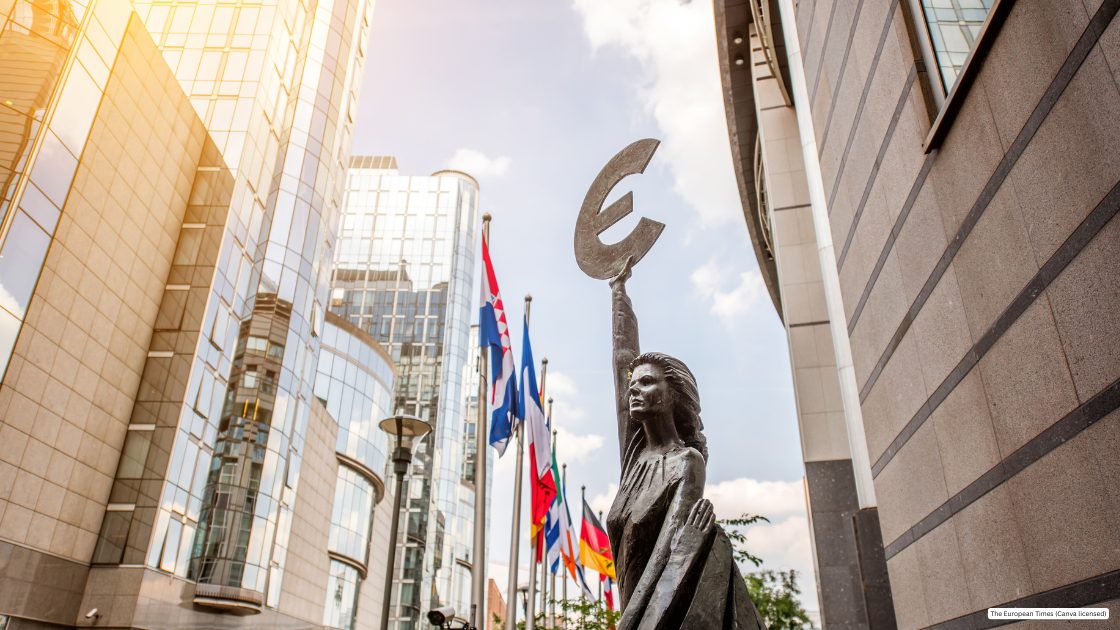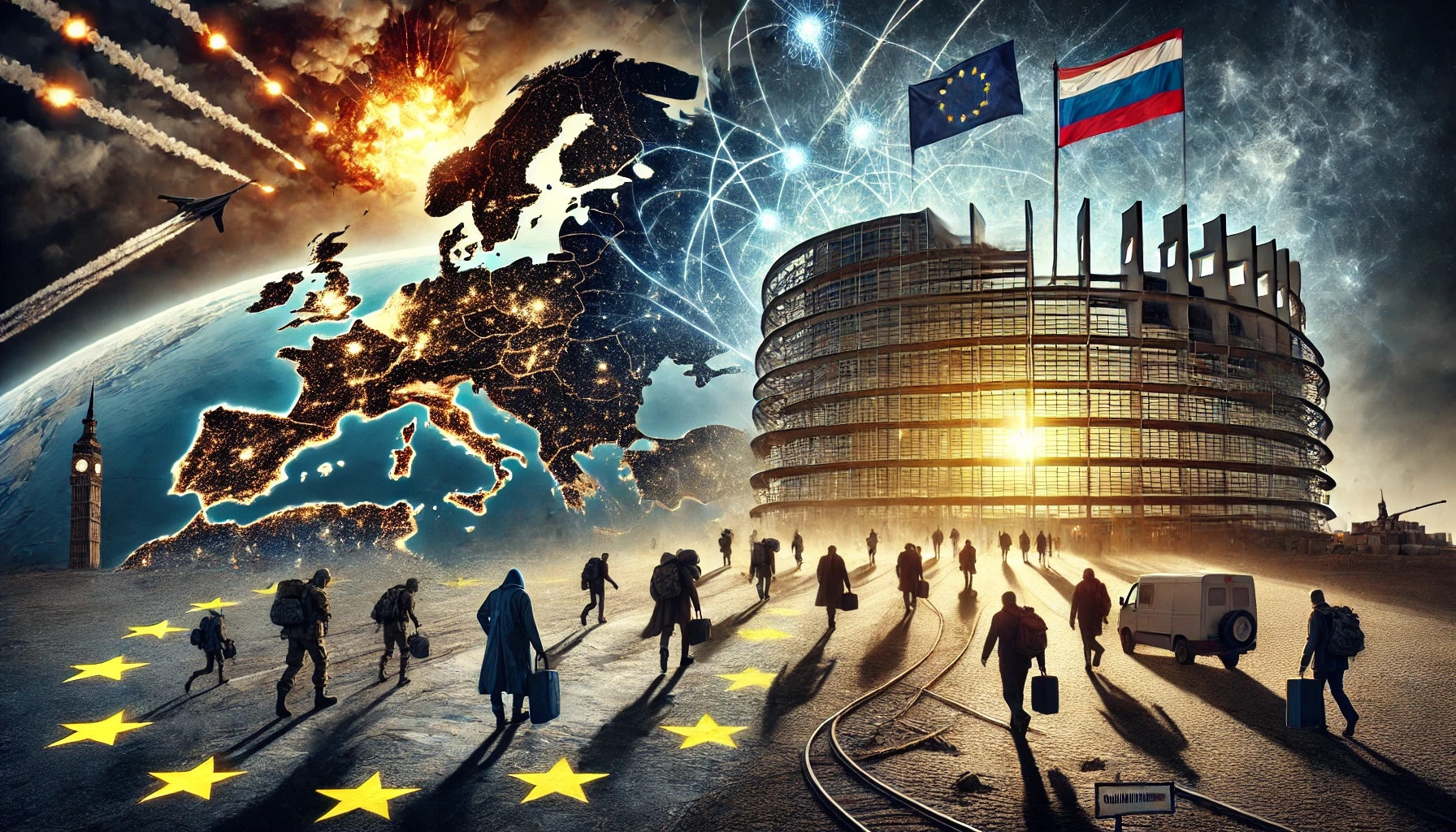Politics
New rules to improve working conditions of platform workers

Platform workers: Council adopts new rules to improve their working conditions
The Council has adopted new rules that aim to improve working conditions for the more than 28 million people working in digital labour platforms across the EU.
The platform work directive will make the use of algorithms in human resources management more transparent, ensuring that automated systems are monitored by qualified staff and that workers have the right to contest automated decisions.
It will also help correctly determine the employment status of persons working for platforms, enabling them to benefit from any labour rights they are entitled to. Member states will establish a legal presumption of employment in their legal systems that will be triggered when certain facts indicating control and direction are found.
Politics
Creative Europe to support around 40 projects to boost literary translation in 2025



DISCLAIMER: Information and opinions reproduced in the articles are the ones of those stating them and it is their own responsibility. Publication in The European Times does not automatically means endorsement of the view, but the right to express it.
DISCLAIMER TRANSLATIONS: All articles in this site are published in English. The translated versions are done through an automated process known as neural translations. If in doubt, always refer to the original article. Thank you for understanding.

The call Circulation of European Literary Works supports the transnational circulation and the diversity of European literary works through the translation, publication, distribution, and promotion of European literary works of fiction .
With a budget of €5 million, about 40 projects will be selected for funding.
The deadline for applications is 11 February 2025.
Eligibility
Interested organisations can apply individually or as a consortium of at least 2 eligible organisations. Each project must have a sound editorial, distribution and promotion strategy and propose a minimum of 5 eligible works of fiction written by authors who are nationals of, or residents in, or recognised as part of the literary heritage of an eligible country.
Applicants can apply with projects of different sizes:
- Small scale: projects proposing at least 5 translations of eligible works
- Medium scale: projects proposing at least 11 translations of eligible works
- Large scale: projects proposing at least 21 translations of eligible work
Source link
More from the author
– EXCLUSIVE CONTENT –
Politics
Persons with disabilities set to benefit from new laws on parking cards

European disability card and European parking card for persons with disabilities: Council adopts new directives
The Council has adopted two new directives that will make it easier for persons with disabilities to travel within the EU.
The directive establishing the European disability card and the European parking card for persons with disabilities will ensure equal access to special conditions or preferential treatment for persons with disabilities during short stays throughout the EU. Examples include reduced or zero entry fees, priority access, assistance, and reserved parking spaces.
Furthermore, ministers have adopted a directive extending these provisions to non-EU citizens who legally reside in EU countries, meaning they will also be able to use these cards during short-term stays in other member states.
National authorities will be responsible for issuing physical and digital European disability cards in an accessible format. The cards will be recognised throughout the EU as proof of disability or entitlement to specific services based on a disability. The European parking cards for persons with disabilities will be produced in physical format, with member states having the option to also issue them in digital format.
Next steps
The directives will now be signed by both the Council and the European Parliament and will enter into force following publication in the EU’s Official Journal. For both directives, member states will have two and a half years to adapt their national legislation and three and a half years to apply the measures.
Background
The Commission published a proposal for a directive establishing a European disability card and a European parking card for persons with disabilities in September 2023. The Council reached an agreement with the European Parliament on 8 February 2024.
The Commission’s proposal for a directive extending the European disability card and the European parking card for persons with disabilities to non-EU citizens legally residing in EU member states was published in October 2023. The Council and the Parliament reached an agreement on 4 March 2024.
Politics
The European Migration Dilemma: President Metsola Calls for a Unified European Solution

In a pivotal address to European leaders, European Parliament President Roberta Metsola underscored the critical need for a comprehensive European solution to the migration crisis, while also reaffirming Europe’s unwavering support for Ukraine amidst its prolonged conflict with Russia. Speaking from the heart of European politics, Metsola’s speech painted a clear picture of the complex and interconnected challenges that Europe faces—where migration, war, and instability ripple far beyond their immediate borders, touching the very core of European unity and values.
Standing Firm with Ukraine: “Nothing About Ukraine Without Ukraine”
Metsola began by highlighting Europe’s moral and strategic commitment to Ukraine, now approaching 1,000 days under Russian aggression. Her message was resolute: Europe must stand with Ukraine until a just and lasting peace is secured. However, she rejected any notion of peace through submission, insisting that real peace must be anchored in freedom, dignity, and justice—principles that resonate deeply within the European project.
“We will, and we must, keep standing with Ukraine,” Metsola stated, emphasizing that peace cannot be built on capitulation or compromise with aggression. Her firm stance echoed the European Parliament’s ongoing support, demonstrated by an impending vote to provide Ukraine with a Macro-Financial Assistance loan of up to 35 billion euros. This substantial aid package, she said, signifies Europe‘s commitment not only politically, but also financially, to Ukraine’s sovereignty and reconstruction.
Her words reflected the broader European consensus: Ukraine’s future belongs to Ukraine, and any solution that does not include the voices of Ukrainians is no solution at all.
The Middle East: A Call for Urgent Action
Metsola also turned her attention to the escalating tensions in the Middle East, particularly in Lebanon and Israel. Europe, she argued, cannot afford to be passive as violence and instability spread across the region. Stressing the need for a sustainable, two-state solution that secures dignity for Palestinians and safety for Israelis, Metsola reaffirmed the European Parliament’s call for an immediate ceasefire and the release of hostages.
Her words rang with a sense of urgency as she highlighted Europe’s responsibility in addressing the wider consequences of regional instability. “What happens in Eastern Europe, the Middle East, or Northern Africa does not stay isolated—there are consequences for Europe,” Metsola warned. Nowhere, she suggested, is this truer than in the sphere of migration.
Migration: A European Solution or a Fragmented Failure?
The crux of Metsola’s speech, however, centered on migration—a challenge that has long tested the resilience and unity of the European Union. With the recent adoption of the EU Migration and Asylum Pact following a decade of political deadlock, Europe now has a framework to address migration in a way that balances border security with humanitarian obligations. However, Metsola cautioned that this Pact would only succeed if European countries stand united, particularly in moments of crisis.
“The real solution is a European solution,” Metsola declared, advocating for broad, holistic, and sustainable cooperation. She pointed to the hybrid threats posed by states like Russia and Belarus, which have weaponized migration as a tool to destabilize Europe. This manipulation of human suffering for geopolitical gain has heightened the need for stronger European coordination and action.
Metsola was clear: migration is not an isolated issue. The instability in Ukraine, the Middle East, and North Africa has direct consequences for Europe, particularly in terms of migration flows. In response, Europe must not allow itself to be fragmented by external actors exploiting these crises. “We must respond to those who seek to abuse the systems we built for the betterment of man,” she urged, calling for a response that is both firm and compassionate—one that aligns with Europe’s core values of human dignity and justice.
Securing Schengen: Integrity Through Unity
Metsola’s final message was a plea to safeguard the integrity of the Schengen Area, the symbol of free movement within Europe. A failure to implement the Migration and Asylum Pact effectively, she warned, could compromise this freedom—a freedom that millions of Europeans have come to cherish as one of the Union’s most tangible achievements.
As European leaders continue to grapple with the pressures of migration, Metsola’s call for a coordinated European approach was a reminder that fragmentation is not an option. Only through solidarity, cooperation, and shared responsibility can Europe ensure the stability of its borders while remaining true to its humanitarian ideals.
Conclusion: A Challenge to European Leadership
Roberta Metsola’s speech was a call to action—a reminder that Europe’s greatest challenges, whether they be migration, war, or regional instability, can only be overcome through unity. Her message to European leaders was clear: Europe’s future rests not on isolated national policies but on a collective European solution. Only by working together can Europe protect its borders, uphold its values, and ensure peace, security, and dignity for all.
As the migration crisis intensifies and conflicts continue to threaten European stability, Metsola’s words serve as both a warning and a beacon. The time for decisive, coordinated action is now.
-

 Sports5 days ago
Sports5 days agoItaly, Daniel Maldini doesn’t hide his excitement
-

 Sports6 days ago
Sports6 days agoMarathon, new women’s world record
-

 Africa5 days ago
Africa5 days agoThe European Union and Morocco: Navigating Trade Relations and Geopolitical Issues
-

 Sports6 days ago
Sports6 days agoPep Guardiola opens to a return to Italy
-

 Sports5 days ago
Sports5 days agoNations League: Italy poker, overcome Israel. Azzurri one step away from the quarters
-

 Sports4 days ago
Sports4 days agoPhysical problem in national team: Piotr Zielinski scares Inter Milan.
-

 Health & Society5 days ago
Health & Society5 days agoThe Resident, Netflix’s medical series that exposes medical corruption in the US
-
EU & the World5 days ago
Is the Stock Market Open Today? What to Know About the Markets









